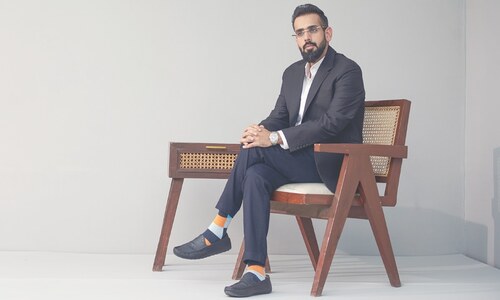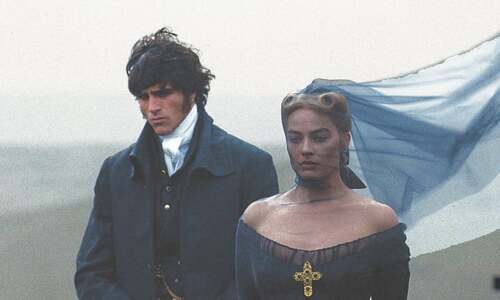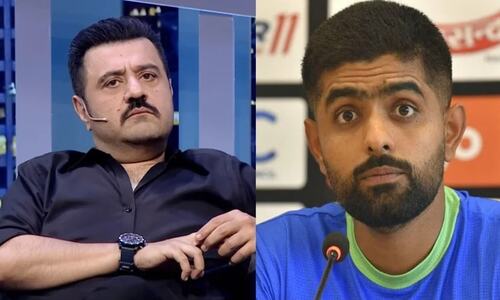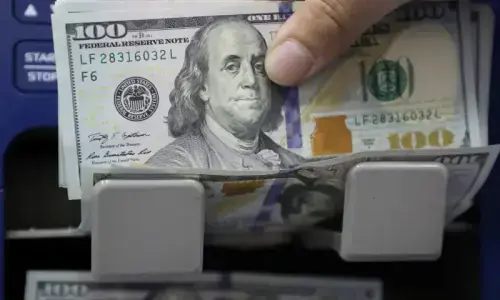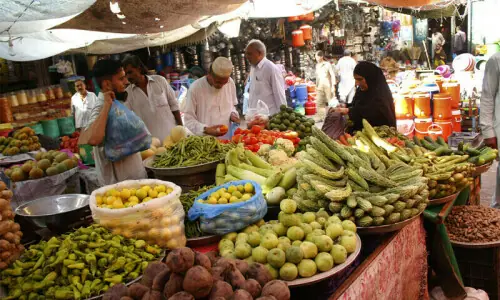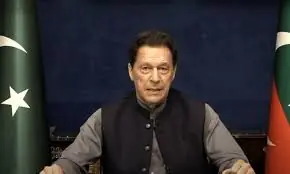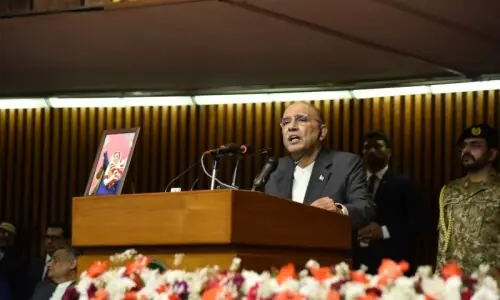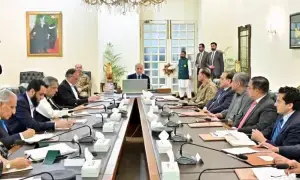
“If you are sincere to your character, it simply does not matter whether you are essaying an older person’s role or a younger one’s. It’s a game of imagination and the secret of success.”
Coming from Deeba, it is a worthy piece of advice for the actors of today.
Deeba was a sought-after child artist in the nascent days of the Pakistani film industry. Later, she graduated to side roles before playing the lead and then gradually transitioning into character roles. In that sense, Deeba is an all-rounder who has portrayed characters representing all age groups.
Raheela aka Deeba was born in the Ranchi district of Bihar in India around the time of Partition, and she became a child artist with the film Miss 56. Some six years later, she found a place among the future superstars and then debutants Zeba, Muhammad Ali, Talat Hussain and Kamal Irani for Chiragh Jalta Raha (1962).
Deeba’s career trajectory is strikingly similar to that of the Urdu film industry in Pakistan, which boomed in the ’50s, expanded in the ’60s and left the scene when Punjabi films took over in the ’70s… only to stage a comeback in the ’90s
For Chiragh Jalta Raha, Fazal Ahmed Karim Fazli gave her the screen name of Deeba. “I am lucky to have worked with all the top-notch directors of my time and I learned a lot from them. I debuted at a time when old-school directors were on the way out and fresh blood was entering the scene,” she says.

“My photographs were already doing the rounds in film studios and I was selected by Fazli sahib for the role of an innocent-looking girl. The film, produced in Karachi, revolved around a family embroiled in the corrupt political system. Talat Hussain played the role of my younger brother, while I was paired with Muhammad Ali, the villain of the movie.
“Mohtarma Fatima Jinnah graced the premiere of the movie at Nishat Cinema with her presence,” Deeba reminisces, turning the clock some six decades back.
Deeba did not have to wait long to bag her first leading lady role. She was cast opposite Habib in Yeh Jahan Walay (1964). However, it was Chingari the same year that really left a mark on audiences with her meaningful acting, and gave her the recognition she deserved.
“It was Chingari’s director/producer Khwaja Khurshid Anwar who persuaded me to do the role. He wanted a girl with a maasoom [innocent] face and youthful looks. I had to play the role of a girl who is blinded by the carefree life of her stepmother. As a mere teenager, I had to give my best in the presence of Santosh Kumar, Shamim Ara, Ijaz and Talish,” Deeba says. Her next role in Rivaaj (1965), again with Zeba and Muhammad Ali, also won her laurels.
Deeba is all praise for the marvelous writer, the late Riaz Shahid, who taught her the basics of acting.

“We simply don’t have people such as Riaz Shahid anymore. I worked with him in Dosheeza [1962], Khamosh Raho [1964] and Rivaaj [1965]. He used to explain the dialogues to us and would guide us with the stresses and pauses. While not everyone could do justice to his script, I like to think that maybe I did, as I was lucky to have worked with him more than once.”
On the other hand, according to Deeba, ace director Hassan Tariq was someone hard to satisfy. ‘OK’ would be his final word after a take went really okay — no applause and no appreciation at all, she says. “Once I asked him about this response and he said ‘Theek hi kiya hoga jo OK kiya’ [You must have done it right for me to OK it].”
Deeba considers Hasan Tariq as one of her mentors, “While I was acting opposite Nadeem in Sangdil, Kamal in Shehnai and Ijaz in Dard [all in 1968], I was selected for the role of the sister of all three in the multi-starrer film Behen Bhai. Hasan Tariq Sahab guided me a lot and the film was a hit at the box-office.”
Among her fellow actors, Deeba is all praises for Shahenshah-i-Jazbaat [The King of Emotions] Muhammad Ali. “Ali bhai never looked back after the climax scene of Khamosh Raho, where I played his long-lost sister. The way he recognises me and his mother in the court scene is still remembered by cine-goers. We were later paired opposite each other in Aaina [1966] and worked in a variety of roles till Seeta, Maryam, Margaret [1978].”
Deeba was cast again in Anjuman [1970], another film where Hasan Tariq was the director. Here she found herself in the company of Sabiha Khanum, Santosh Kumar, Rani and Waheed Murad, and did a commendable job.

“I played the title role in Shama [1974] in which Nadeem, Waheed Murad and Muhammad Ali were cast together for the first time, ” she remembers. Deeba also rejects the claim that Waheed was egotistic. “In Lahore, Waheed sahib used to live quite close to our house and would usually come over to play badminton and other games during his free time.
“During the making of Ishara [1969], the only film directed by Waheed Murad, he and I had to sing a song which had more dialogues than lyrics. We had to play with expressions, as we were supposed to be talking on the phone. Music director Sohail Rana helped with the singing part but, before the final take, I had a slight objection to the presence of Ahmed Rushdi, the lead singer of Ishara.
“We were not professional singers and knowing that a legend such as him was in the recording room made me nervous. The kind-hearted Rushdi sahib asked Sohail Rana to give us another chance, but Sohail sahib stuck with the only take he recorded, which was done without a proper rehearsal.”
Ishara failed to click at the box-office despite a good soundtrack and a powerful story.
Be it a college girl in Ishara, a mature girl in Ik Nagina, the mistaken love interest in Tum Hi Ho Mehboob Mere or a spoiled brat in Neend Hamari Khwab Tumhare, Deeba has played all kinds of roles with Waheed Murad. Her last film with the chocolate hero was Parastish (1977), the same year she was seen in the role of Sultan Rahi’s mother in Shaheen.
Ironically, Sultan Rahi had played the role of her father in Shehnai (1968), had her signed for his own production as a leading lady with him in Taqdeer Kahan Le Aayi (1976) and then played her son. Wasn’t it difficult?

“If you are unable to portray on screen what is expected of you, you cannot justify yourself being an actor,” says Deeba. “The same happened with Talat Hussain who played my younger brother in a film, was part of the love triangle in Ishara and played the role of my husband in Muhabbat Marr Nahi Sakti.”
Deeba also has memories with Shamim Ara, who she literally grew up with. “I played her younger self in Faisla [1959], was cast in a supporting role with her in Chingari [1964], and later in Doraha [1967]. The closeness I developed with Shamim Ara in those days remained till the day she died. People such as Shamim Ara are born once in ages.”
The question as to how she managed to bag roles in the experimental movies of her times does not bother her at all. She worked in Deewana (1964), the film which involved an invisible man, Zinda Laash, the Pakistani version of Dracula and Dour Ki Awaz, a whodunit. “Maybe I liked the challenge,” is her short answer.
Deeba’s debut in Punjabi films happened with Sajna Dour Dian (1970) that brought her the only Nigar Award of her career. “Before Sajna Dour Dian, leading Urdu film stars were skeptical of venturing into Punjabi films. Waheed Murad [Mastana Mahi, 1971] and Kamal [Jutt Kurriyaan Tu Darda, 1976] entered Punjabi films after I did,” Deeba laughs, taking the credit for breaking the stereotype.
With her innocent looks and gorgeous smile, Deeba was soon named Pakistan’s answer to the Mona Lisa. The prints of Chiragh Jalta Raha, Mehboob, Milan, Rivaaj, Phir Chand Nikle Ga are now all but considered lost forever. The film loss which saddened her much, however, is Mere Jeevan Saathi, a film she produced and in which she paired with Waheed Murad. The film, though complete, was never released.
“I was away from Pakistan and the distributors could never make it to the cinema. The only thing left of the movie is the song, Hum se rootho ji by Ahmed Rushdi. We don’t have a culture of preserving our movies and it’s our loss in the end.” Mere Jeevan Saathi was the directorial debut of Javed Fazil, who went on to make several hits during the ’80s and the ’90s.
Deeba also opted to travel to then East Pakistan (now Bangladesh) and act in actor/director Rehman’s Milan (1964). “Rehman sahab had just lost his leg in an accident and was in dire need of money to have an artificial limb installed,” she recalls. “He had started Milan, based on his own experiences, but no leading actress from West Pakistan was willing to work with him for what he was offering.
“I agreed to do the film for free, but he persuaded me to take a small amount as a token and I eventually charged one rupee as the signing amount. Similarly, Madam Noor Jehan also sang for the film and charged a rupee for her services,” she recalls.
But Deeba was handsomely reward for her good deed. Her long-lost mother got in touch with her on that trip to East Pakistan. Her aunt, her guardian with whom she stayed in Karachi, kept her mother’s whereabouts a secret from her, for reasons unknown to Deeba. While shooting for Milan, Deeba received a letter from her biological mother. It must have had a filmi reunion surely.
At the time, Deeba and most of the lead actors charged around 10,000 to 20,000 rupees to sign a film. However, with the arrival of Nadeem, all that changed. “A newcomer, when Nadeem was asked to do his first film in West Pakistan, he demanded 60,000 rupees as the signing fee from Shabab Kairanvi. He eventually got 40,000 rupees and it helped us as our ‘fee’ was raised as well,” she says.
On the home front, Deeba married film cameraman Naeem Rizvi in 1971 and moved to Saudi Arabia for a couple of years. With kids to raise, Deeba stayed away from the limelight and returned only to play character roles in the ’90s.
She has played the role of the mother to nearly all stars of the day, from Ghulam Muhiuddin, Faisal and Saud, to Moammar Rana and Humayyun Saeed. Her own kids, Imran Rizvi and Madiha Rizvi are carrying their mother’s legacy forward by appearing regularly on the small screen.
The recipient of the Presidential Pride of Performance Award in 2020, Deeba has grown with Urdu films. She graduated from child roles to character roles, faced hardships but overcame every obstacle. She eventually left films but returned as it was the only place she was familiar with.
The Urdu film industry boomed in the ’50s, expanded in the ’60s and left the scene when Punjabi films took over in the ’70s, only to stage a comeback in the ’90s. And if ever there could be a personal representation of Pakistani cinema, Deeba would be it.
Published in Dawn, ICON, February 20th, 2022

